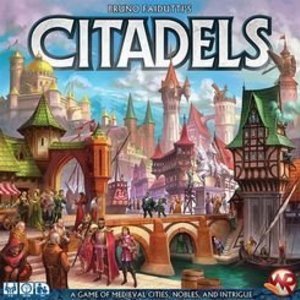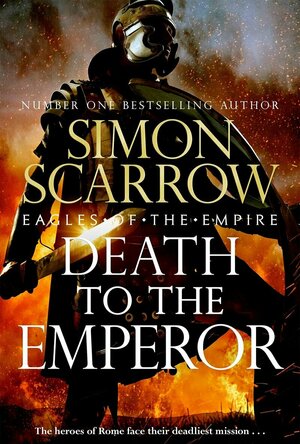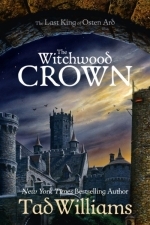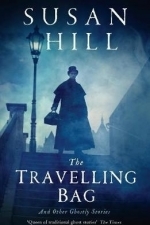
The Travelling Bag: And Other Ghostly Stories
Book
From the foggy streets of Victorian London to the eerie perfection of 1950s suburbia, the everyday...
fiction horror

Born to Run
Book
"Writing about yourself is a funny business...But in a project like this, the writer has made one...

Jason Vale’s 7-Day ‘Super-Charge Me!’ Health Kick
Food & Drink and Lifestyle
App
Off of the back of his number 1 bestselling apps, 7lbs in 7 Days: Juice Master Diet and the 5:2...

Jason Vale’s Super Juice Me! Challenge
Food & Drink and Health & Fitness
App
Number 1 best-selling juicing author, Jason Vale, brings his most comprehensive and life-changing...
David McK (3562 KP) rated Death to the Emperor (Macro and Cato #21) in Books
Apr 10, 2023
I wondered into a local branch of Eason's, and saw Under the Eagle on offer, sold for an introductory price (which I can't even remember), and with a blurb that sounded interesting. That, and a quote from the king of historical action-adventure fiction Bernard Cornwell that 'I really don't need this kind of competition ... a great read'.
Jump forward just over 20 years, and we're now onto book #20 in the series, and back in the Roman province of Brittania after the intervening books have had us all over the Roman Empire.
The series has also lost the 'Eagle' that was always included somewhere in the earlier titles (Under the Eagle, The Eagle's Conquest, The Eagle and the Wolves etc), with that word last used in the title in entry # 7 (The Eagle in the Sand).
That's not all that has changed: Cato is no longer the scared young man he had been in the first entries; Macro no longer the seasoned Centurion. Now, Macro is retired from active service whilst Cato - who now has a family of his own - has risen in rank above that that Macro ever reached but is still firm friends with the latter.
We've now also reached a pivotal moment in Roman Britain history, with the Boudicean revolt just about to kick off (as it does here) and as the Romans finally capture and raze the Druid stronghold of Mona.
Those two events form the backbone of this novel, with Cato involved in the attack on Mona whilst Macro is charged with the defence of Camulodunum (Colchester) and in charge of the Roman Reserves there whilst the main army is away on campaign, just after the Governor of Britain has further alienated their Icenian allies.
As with all of the Simon Scarrow books I've read, the history is worn lightly enough to make an enjoyable read: this is not a dry, stuffy retelling of events but rather uses the real historical events as the backbone for the story being built around it.
This, I have to say, is also the first in the series that I can remember ending in a definite cliffhanger ...
(I might have to go back and re-read the previous now)
Hazel (1853 KP) rated The Witchwood Crown in Books
Jul 22, 2017
Approximately 30 years ago, the first novel in Tad Williams’ Memory, Sorrow and Thorn trilogy was published. Fans all over the world adored this high fantasy story about a young kitchen boy, Simon, who goes on to become King of Ostern Ard. Now Williams’ has returned to the fictional lands with a follow-up trilogy, The Last King of Ostern Ard.
Three decades have been and gone since the ending of the previous series. The Witchwood Crown explores the changes that have occurred since the epic story finished, unfortunately, things are not looking good. Simon and his wife, Miriamele, have suffered a few personal tragedies, leaving them with two fatherless grandchildren. Young Lillia is an out spoken child who expostulates with everyone in order to get her way – she is a princess after all. Morgan, the heir, is rather obtuse in comparison; a lazy young man whose vexatious behaviour constantly causes the Royals to despair. However, this is only a tiny problem in their restless kingdom.
The Norn Queen, an antagonist of the original story, has been asleep for the past few decades. Mortals foolishly believed they were safe from the evil character, yet unexpectedly, she has awoken and is determined to destroy humanity. Too weak to carry out her own plans, she infiltrates the minds of the members of her immortal race, sending them off on perilous missions, for example, to extract blood from a live dragon.
As well as Simon’s city and the Norns, there are several more important characters and locations, each with their own on going storyline. A mix of assiduous and animus personas shake up the peace that had settled at the closing of Memory, Sorrow and Thorn. It is almost impossible to fathom whom the good and bad are, especially when reading from so many different points of view.
If the 700 odd pages did not already give it away, the inclusion of maps and appendixes prove the book to contain an extremely lengthy tale. Flitting from one set of characters to another, it is hard to keep up with the hundreds of names and roles. It does not help that the majority are unpronounceable, full of additional apostrophes making them as unlike English names as possible – a usual trait of fantasy fiction.
Not only are the names difficult to pronounce, the words and vernacular some of the characters use are just as dumbfounding. Thankfully, definitions are provided at the back of the book, but to keep flipping between pages can get quite tedious after a while.
The sheer number of characters makes it difficult to unearth the main storyline. In fact, there does not appear to be a strong plot at all. Judging by the ending, it is as though The Witchwood Crown is only an introduction to the narrative that will begin in the following book.
Reading the primary series first will have its benefits, however, it is not mandatory. New readers, like myself, are able to pick up snippets of past events and piece together the lead up to the current scenario. Although a work of historical fantasy, it is possible to see elements of real life within the story. Dragons and fairies may not exist in our world, but similar beliefs and systems are relatable. For instance, the days of the week are obviously based on the English names: Sunday, Moonday, Tiasday, Udunsday, Drorsday, Frayday and Satrinsday.
The most striking connection between real and imagined is the religious beliefs of different clans and species. Many of the mortals have taken, up what is suggested to be, a new religion. There are so many similarities; it is undoubtedly based on Christianity. Likewise, other beliefs are comparable to pagan rites and ceremonies of the distant past.
The Witchwood Crown is not an easy book to read, neither is it all that exciting. On the other hand, it is interesting. It is equivalent to reading historical information with the added benefit of mythical creatures. This is not a quick read; therefore you need to be dedicated to sitting down and pacing through the story. It is definitely targeted at high fantasy fans – in fact, the original stories influenced George R. R. Martin (A Game of Thrones) – who are used to the length and complexity of the narrative

Belatedly by Ore
Album Watch
music merch BELATEDLY by ORE Share / Embed Wishlist supported by Mysterioso thumbnail ...
indie alternative experimental
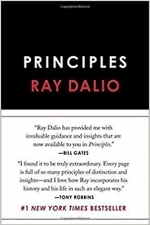
Principles: Life and Work
Book
“Significant...The book is both instructive and surprisingly moving.” —The New York Times ...
business finance
Cyn Armistead (14 KP) rated Unusual Suspects: Stories of Mystery & Fantasy in Books
Mar 1, 2018
"Lucky" by Charlaine Harris - Sookie is much easier to take in short form. I can't help it, the woman grates on me (in the TV show even worse than in the books). The other characters keep me reading.
"Bogieman" by Carole Nelson Douglas - Delilah Street does more than grate on my nerves in long form. She's more palatable in short form, too, but there are reminders of why I don't intend to read more in that series.
"Looks are Deceiving" by Michael A. Stackpole - If I've read any of Stackpole's work before, it's been in anthologies, and I don't remember it. I did wonder if this short story is set in a universe he uses in longer works, though. It wasn't bad at all.
"The House of Seven Spirits" by Sharon Shinn - I loved this story! And how often do you say that about a haunted house tale? I must track down and read some of Shinn's novels. Any suggestions?
"Glamour" by Mike Doogan - The Peasantry Anti-Defamation League might be after Doogan if he isn't careful (at least, representatives of the male peasantry). The story was cute, and it did make me laugh.
"Spellbound" by Donna Andrews - This is another author whose books are going on my (groaning) to-read shelf. The story hit a few clichés, but was fun enough to get away with them.
"The Duh Vice" by Michael Armstrong - Ugh. A little too preachy, and way too much anti-fat prejudice.
"Weight of the World" by John Straley - Where does Santa Claus go in the off-season? That's the biggest question answered in this piece. The "mystery" was "solved" nearly as soon as it was discovered.
"Illumination" by Laura Anne Gilman - Bonnie's back story! I think a bit of this story is used in the first chapter of Gilman's first PUPI novel, but I'll know more when I get my hands on it. It's a must-read for fans of the Cosa Nostradamus universe, though.
"The House" by Laurie R. King - could we maybe call a hiatus on the abused-kid stories? Maybe I'm hypersensitive, but I'm tired of them.
"Appetite for Murder" by Simon R. Green - another dark Nightside story. I don't think I'll ever need to read more in that universe.
"A Woman's Work" by Dana Stabenow - I'm an unabashed Stabenow fangirl. Despite that, I wasn't sure how she'd do in a fantasy setting. She proved herself, certainly. I can only hope that we'll see longer fantasy works from her in print at some juncture.
